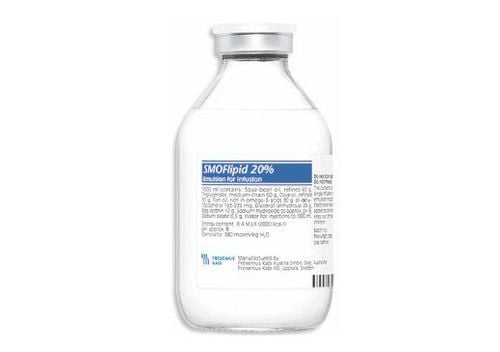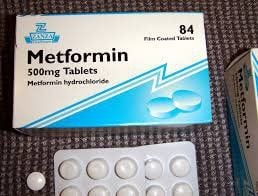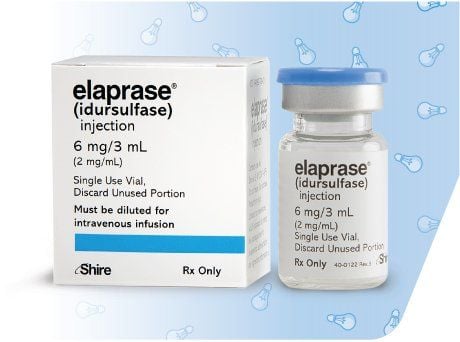This is an automatically translated article.
The article was professionally consulted by Specialist Doctor II Cao Thi Thanh - Pediatrician - Department of Pediatrics - Neonatology - Vinmec Hai Phong International General Hospital. Dr. Thanh has worked for 25 years in the treatment of neonatal pediatric diseases.Neonatal fatty acid metabolism disorder is an inherited syndrome. If diagnosed and treated early, most children with this condition can live healthy, normal lives. If left untreated, children can have serious health problems, even death.
1. Overview of neonatal metabolic disorders
Normally, there are 3 main components in a person's diet: protein, lipid and carbohydrate. When put into the body, they are metabolized, forming energy for the body to exist and develop. To metabolize them, a variety of enzymes, receptors, transport proteins, and agonists are required. These components are synthesized under the control of the respective genes. This is also a genetic factor unique to each person.Neonatal metabolic disorder is one of the rare congenital diseases, caused by the deficiency of receptors, transport proteins, enzymes and synergistic factors in the metabolism of fatty acids, amino acids, and amino acids. organic acids. This leads to changes in the synthesis or degradation of substances in the body, forming abnormal products, causing cell toxicity, and impairing the function of some organs in the child's body.
This condition is divided into 3 main groups:
Amino acid metabolism disorders in infants; Disorders of fatty acid metabolism in infants; Disorders of carbohydrate metabolism in infants. When there is a metabolic disorder, the child has manifestations such as lethargy, refusal to breastfeed, vomiting, fever, decreased health, abdominal distension, diarrhea, unusual odor in urine and sweat, rapid breathing or cessation of breathing. breathing without a history of asphyxia at birth, irregular heartbeat, coma, convulsions, or even death.

2. What is the disorder of fatty acid metabolism in infants?
2.1 Concepts
This is a congenital syndrome that affects the baby's ability to break down fat. In normal healthy children, the body will use glucose from starch and sugar to create energy and provide for life activities. When the energy source from glucose is exhausted, the body will use the stored energy source from fat. However, in children with fatty acid metabolism syndrome, they cannot use fat for energy. The disease causes children's blood sugar levels to stay low, accumulating many toxic substances in the child's blood.2.2 Symptoms
Fatty acid metabolism disorder is a syndrome that runs in families. Symptoms of the disease are common in children, sometimes in adults, but very rarely. When a patient has an infection, food poisoning, an illness or an infection, symptoms of the illness can begin such as: Drowsiness, fever, irritability, behavior changes, nausea and vomiting, and diarrhea. bleeding, decreased taste, loss of sensation in arms and legs, muscle pain, cramps, general weakness, low blood sugar, impaired vision.2.3 Complications
With early diagnosis and treatment, most children with fatty acid metabolism disorders can lead normal, healthy lives. However, if left untreated, this condition can lead to many serious health problems such as: Anemia, difficulty breathing, brain damage, coma, heart, liver, lung damage, growth retardation intellectual and cognitive, convulsions, seizures, ... even lead to death.
2.4 Screening tests for fatty acid metabolism in infants
Experts recommend that every newborn be screened for fatty acids to avoid unwanted complications. Tests commonly performed include:Carnitine absorption reduction test: Carnitine is a substance that helps the body convert fat into energy. People with impaired carnitine absorption will not be able to use carnitine to perform this function. Children with the disease usually have symptoms from birth to 7 years old, but there are also children without any abnormal symptoms; Testing for deficiency of the long-chain hydroxyacyl-CoA dehydrogenase enzyme that causes fatty acid oxidation disorders: Children with the disease usually have symptoms in the first year of life; Testing for deficiency of the enzyme that catalyzes very long chain acyl-CoA dehydrogenase: The disease is divided into 3 types, which are found in children before 4 months of age, in children nearly 1 year old or in adults; Testing for medium-chain acyl-CoA dehydrogenase-catalyzed deficiency disease causing fatty acid oxidation disorders: Symptoms are mainly seen in young children, rarely with onset in adulthood; Test for 3-function protein deficiency: There are 3 forms of the disease: early stage (children have symptoms within the first 2 years of life), childhood stage (symptoms usually appear after the child is 1 year old), mild form (rarely, symptoms appear after the child is 2 years old).

2.5 Measures to prevent and treat diseases
PreventionAvoid inbreeding; Pre-marital health examination and genetic counseling; During pregnancy, prenatal screening should be diagnosed by ultrasound, when newborns are born, newborn screening should be performed; Cases such as: The mother continuously had a child who died after giving birth, the child was determined to have a congenital metabolic disease; If a parent carries a gene for congenital metabolic disease, there are family members with similar symptoms, unexplained congenital death, etc., should notify the doctor for initial care and screening. newborn to the child at birth. The above measures help diagnose and treat abnormal problems in children early, reducing the infant mortality rate.
Treatment
Currently, metabolic disorders in children in general and fatty acid metabolism disorders in particular have not yet had a radical treatment. All treatments are aimed at reducing the symptoms of the disease. Some of the measures used in the treatment of children's diseases include:
Building an appropriate diet, avoiding foods that the child's body cannot metabolize. Newborns need to use specially formulated milk, older children need to strictly control their diet; Supplementing vitamins and minerals necessary for the child's body to increase resistance, increase the ability to metabolize substances. With fatty acids that cannot be metabolized, it is necessary to supplement in a form that children can absorb; Monitor and check health periodically to ensure that the indicators in the body are always at a stable level; Some new treatment methods: Bone marrow transplant, stem cell transplant.

When a child has health abnormalities, parents can take the child to Vinmec Health System for timely examination and treatment. The advantages of visiting Vinmec Pediatrics include:
Gathering a team of leading pediatricians: including leading experts, with high professional qualifications (professors, associate professors, doctors). , masters), rich experience, worked in big hospitals such as Bach Mai, 108.. The doctors are well-trained, professional, have a heart - reach, understand young psychology. In addition to domestic pediatric specialists, the Department of Pediatrics also has the participation of foreign experts (Japan, Singapore, Australia, USA) who are always pioneers in applying the latest and most effective treatment regimens. . Comprehensive services: In the field of Pediatrics, Vinmec provides a series of continuous medical examination and treatment services from Newborn to Pediatric and Vaccine,... according to international standards to help parents take care of their baby's health from birth to childhood. Advanced techniques: Vinmec has successfully deployed many specialized techniques to make the treatment of difficult diseases in pediatrics more effective: neurosurgery - skull, stem cell transplant blood in cancer treatment. Professional care: In addition to understanding children's psychology, Vinmec also pays special attention to the children's play space, helping them to play comfortably and get used to the hospital's environment, cooperate in treatment, improve the efficiency of medical treatment.
Please dial HOTLINE for more information or register for an appointment HERE. Download MyVinmec app to make appointments faster and to manage your bookings easily.














